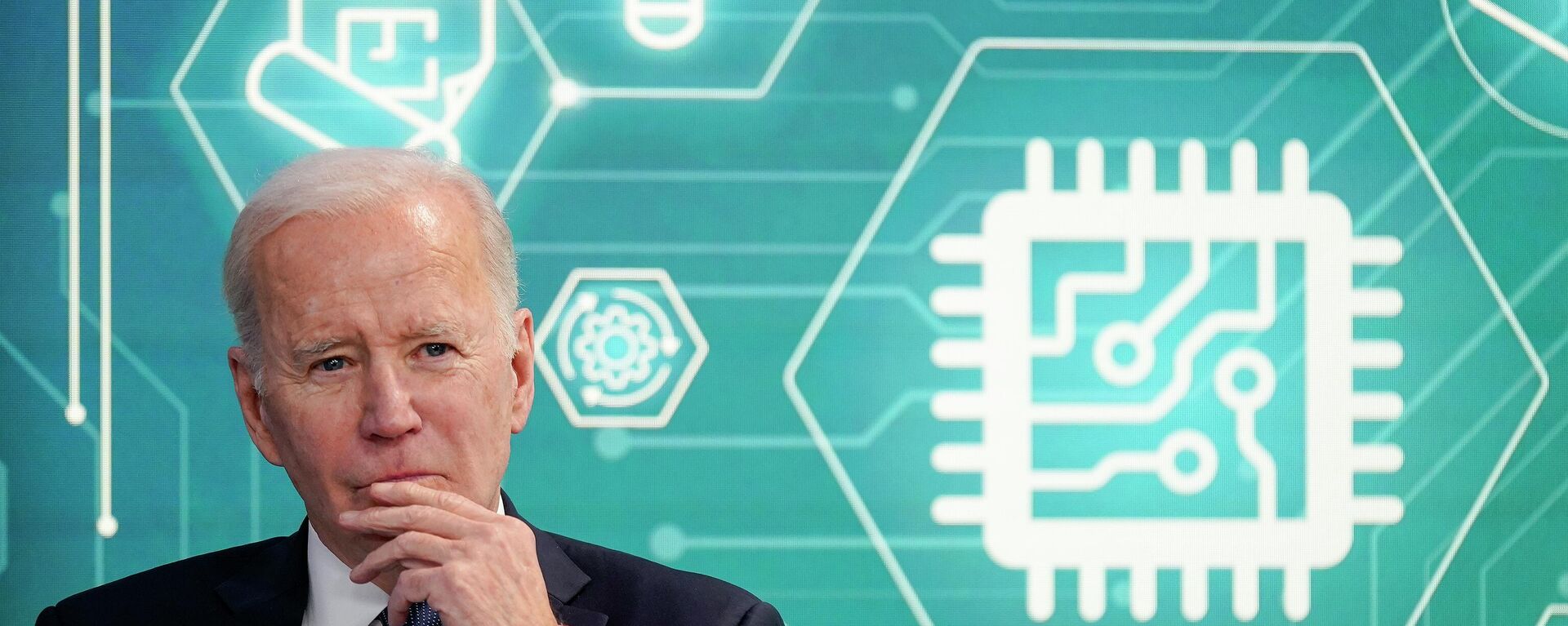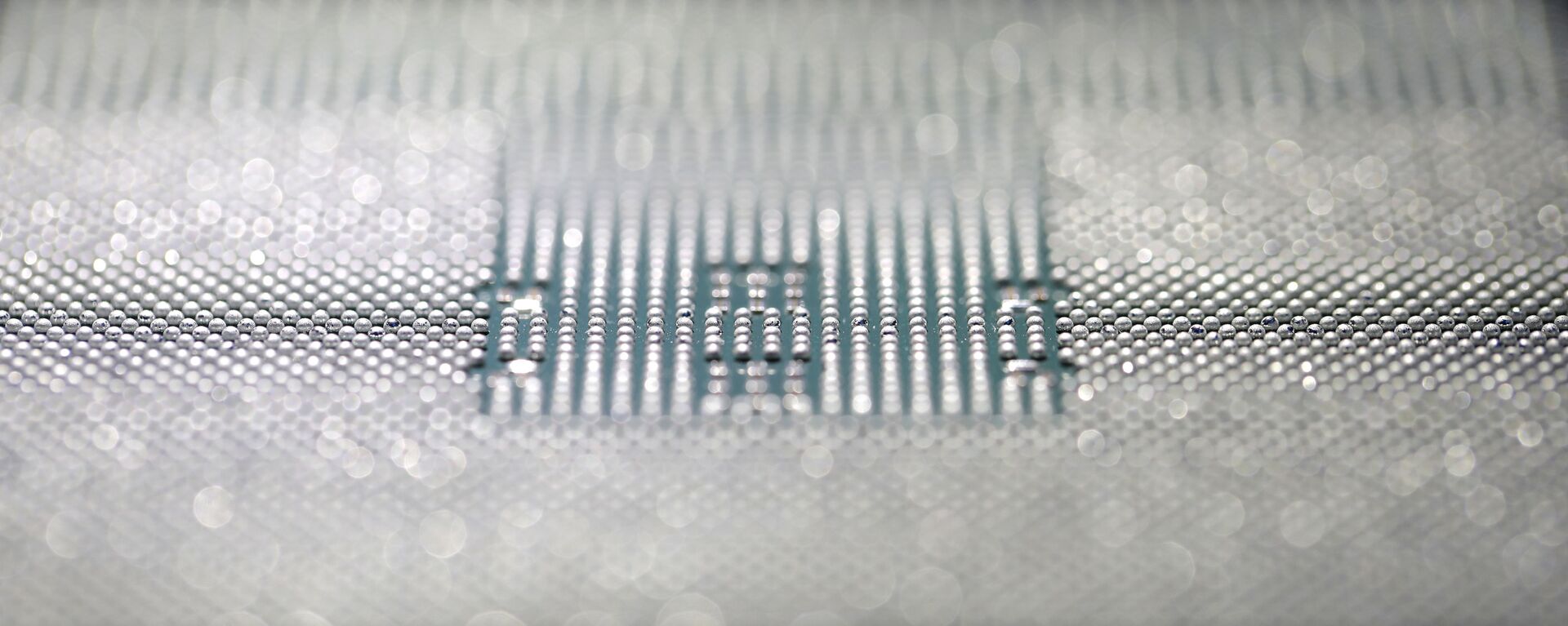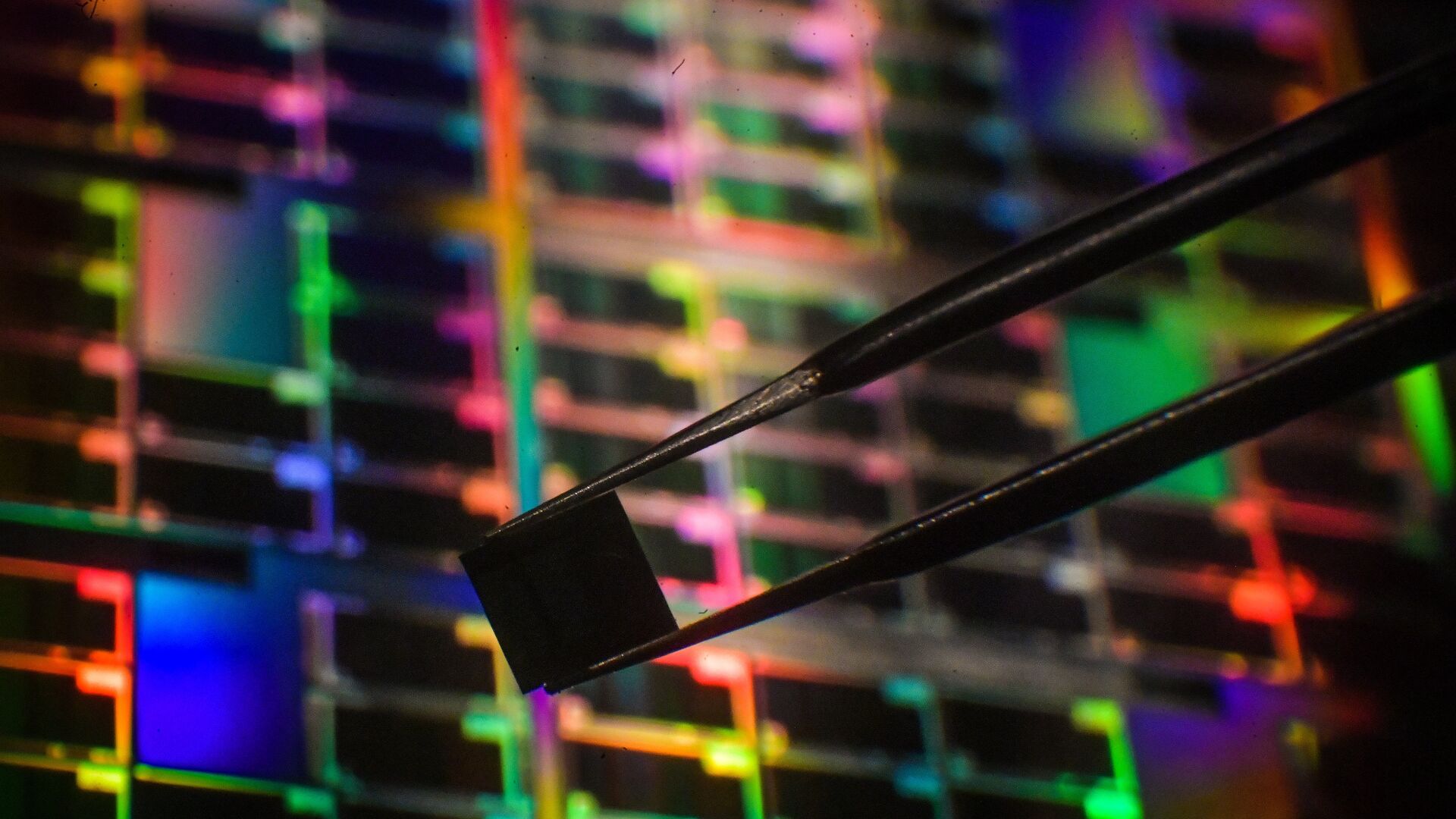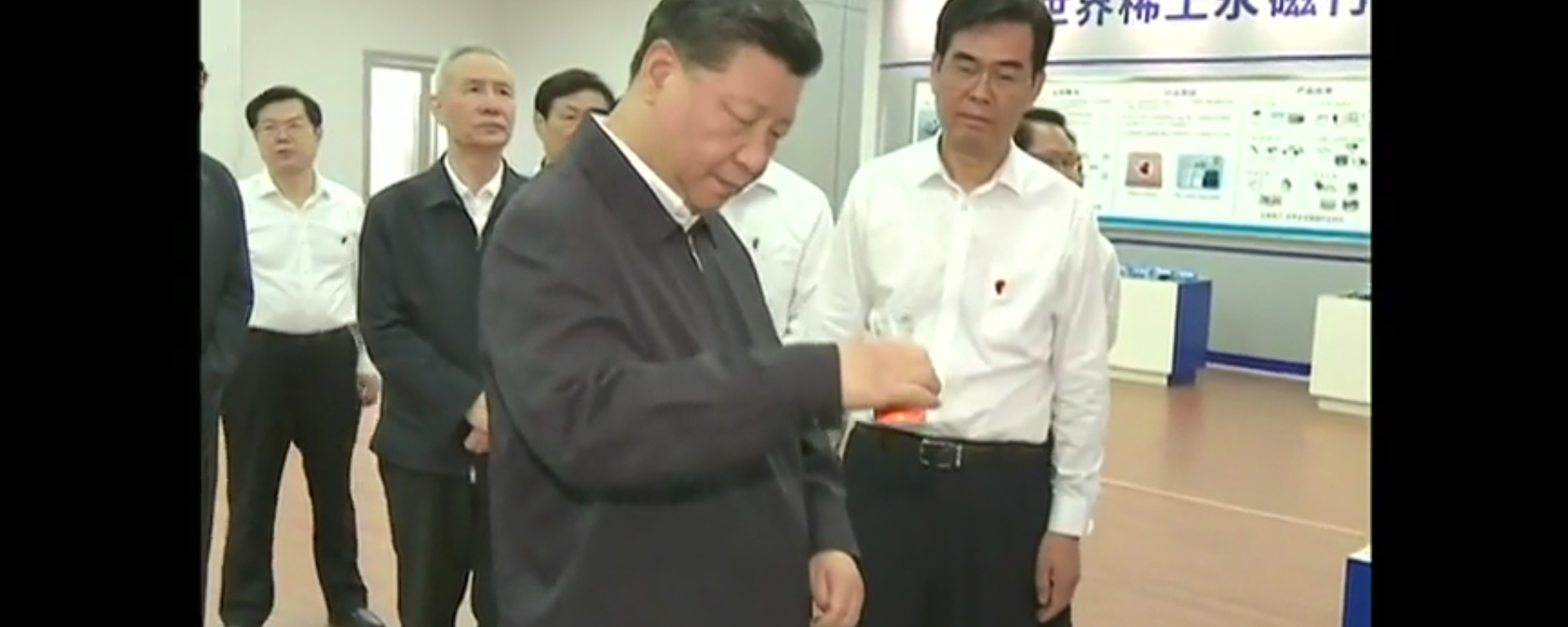https://sputnikglobe.com/20220901/china-chip-restrictions-will-backfire-cause-severe-economic-pain-for-us-itself-observers-say-1100282954.html
China Chip Restrictions Will Backfire, Cause ‘Severe Economic Pain’ for US Itself, Observers Say
China Chip Restrictions Will Backfire, Cause ‘Severe Economic Pain’ for US Itself, Observers Say
Sputnik International
The Biden administration imposed new “license requirements” restricting the sale of high-end graphics processors and artificial intelligence accelerators made... 01.09.2022, Sputnik International
2022-09-01T17:32+0000
2022-09-01T17:32+0000
2022-09-01T17:52+0000
analysis
china
us
technology
trade
https://cdn1.img.sputnikglobe.com/img/106945/96/1069459638_0:160:3073:1888_1920x0_80_0_0_ec73c141869bdea45809a5e602c34b68.jpg
Washington’s decision to restrict the sale of advanced US computer equipment to China and Russia will backfire, the People’s Republic will inevitably come out stronger after a period of pain, and may even retaliate with measures that can devastate the US economy, a pair of China observers have told Sputnik.The high tech industry is a closed loop, Sisci says, with China producing goods and components which the US, Taiwan, and other places depend on, and vice versa.“Definitely, we can see that the United States wants to keep pushing China out of this loop and this could be a slippery slope. For the American high tech industry that could be possibly a blow because, of course, some production was moved to China, and these will have to be [reestablished in] the United States and this could take time and cause delays and setbacks in production,” he says.Pauken is convinced that China “will actually come out stronger” from the current predicament over the medium-to-long term, because it will be forced to be more independent technologically.The restrictions will also mean “closer cooperation on technologies between Russia and China. This is going to be the end result and Washington has not yet figured that out,” the observer argues.Two to three years from now, China will find new suppliers and new customers, shake up their supply chains, and move toward localization, and the matter will become a moot point, the observer believes.Possible RetaliationSisci believes Beijing could hold off on taking any kind of major tit-for-tat measures to the chip snub until after the upcoming October Congress of the Chinese Communist Party, at which the nation’s political, economic, and foreign policy priorities for the next five years will be laid down.Chinese Foreign Ministry spokesman Wang Wenbin slammed the restrictions in a press briefing Thursday, saying they were “doomed to failure” and accusing Washington of misusing state power “and attempting to use its technological privileges to curb and suppress the advancement of emerging economies and developing countries.”Pauken believes that when the response does come, it could hit the US hard.The People’s Republic produces up to 85 percent of the world’s rare earth oxides and 90 percent of the rare earth metals, alloys, and permanent magnets used in heavy industry and a variety of high tech applications. Earlier this year, US media worryingly concluded that China could halt the entire US military-industrial complex dead in its tracks if it stopped rare earths exports.The Trump and Biden administrations have declared a trade and technology war against China in recent years to try to slow the country’s economic and scientific development, shelling out tens of billions of dollars for the domestic production of electronic components and mines for the extraction of strategic minerals.However, half-a-century after it moved to establish ties and trade cooperation with China, Washington remains hopelessly dependent on Beijing for a variety of goods valued at trillions of dollars per year, from medicines (80 percent of ingredients in US pharmaceuticals are sourced in China), to technology (70 percent of smartphones are made in China), to car components, and virtually everything found in Walmart or Target, from toys and shoes to furniture and sporting goods.
https://sputnikglobe.com/20220901/us-orders-nvidia-amd-to-restrict-sales-of-advanced-ai-chips-to-china-1100255148.html
https://sputnikglobe.com/20220901/baijing-us-conducting-technological-blockade-by-restricting-computer-chips-trade-1100277371.html
https://sputnikglobe.com/20220605/prc-could-starve-us-military-industrial-complex-of-ability-to-build-weapons-with-one-move-report-1096026836.html
china
Sputnik International
feedback@sputniknews.com
+74956456601
MIA „Rosiya Segodnya“
2022
News
en_EN
Sputnik International
feedback@sputniknews.com
+74956456601
MIA „Rosiya Segodnya“
Sputnik International
feedback@sputniknews.com
+74956456601
MIA „Rosiya Segodnya“
china, us, technology, trade
china, us, technology, trade
China Chip Restrictions Will Backfire, Cause ‘Severe Economic Pain’ for US Itself, Observers Say
17:32 GMT 01.09.2022 (Updated: 17:52 GMT 01.09.2022) The Biden administration imposed new “license requirements” restricting the sale of high-end graphics processors and artificial intelligence accelerators made by NVIDIA and AMD to China and Russia on Wednesday. The Securities and Exchange Commission said the measure was taken to address the equipment’s possible use for military applications.
Washington’s decision to restrict the sale of advanced US computer equipment to China and Russia will backfire, the People’s Republic will inevitably come out stronger after a period of pain, and may even retaliate with measures that can devastate the US economy, a pair of China observers have told Sputnik.
“It’s not clear if China will retaliate and how. But definitely what happens is – if Chinese production can’t access Nvidia chips, some of the goods which China exports to the United States will be affected. That is, there could be delays in deliveries, in supplies of Chinese goods worldwide and to the US,” Francesco Sisci, an Italian author, columnist, and China expert based in Beijing, says.
The high tech industry is a closed loop, Sisci says, with China producing goods and components which the US, Taiwan, and other places depend on, and vice versa.
“Definitely, we can see that the United States wants to keep pushing China out of this loop and this could be a slippery slope. For the American high tech industry that could be possibly a blow because, of course, some production was moved to China, and these will have to be [reestablished in] the United States and this could take time and cause delays and setbacks in production,” he says.

1 September 2022, 10:20 GMT
“Many US politicians do not understand…that this so-called economic decoupling with China will also lead to severe economic pain for the West, similar to how the West has imposed economic sanctions on Russia, but they seem to have largely backfired and harmed the West more so than Russia,” Thomas Weir Pauken II, an expert on China-US trade, explains.
Pauken is convinced that China “will actually come out stronger” from the current predicament over the medium-to-long term, because it will be forced to be more independent technologically.
The restrictions will also mean “closer cooperation on technologies between Russia and China. This is going to be the end result and Washington has not yet figured that out,” the observer argues.
“In the short term, it’s going to be very hurtful and harmful, just like the time [Donald] Trump caused a lot of pain to [Chinese tech giant] Huawei when he and [Secretary of State Mike] Pompeo imposed sanctions on Huawei. But Huawei still exists, Huawei has changed its ability to do technology, and has become more reliant on other Chinese technology companies. For the moment, companies like Huawei are still hurting, but they will come out stronger because they will create a new type of technology that the West has never thought of before,” Pauken says.
Two to three years from now, China will find new suppliers and new customers, shake up their supply chains, and move toward localization, and the matter will become a moot point, the observer believes.
Sisci believes Beijing could hold off on taking any kind of major tit-for-tat measures to the chip snub until after the upcoming October Congress of the Chinese Communist Party, at which the nation’s political, economic, and foreign policy priorities for the next five years will be laid down.
Chinese Foreign Ministry spokesman Wang Wenbin
slammed the restrictions in a press briefing Thursday, saying they were “doomed to failure” and accusing Washington of misusing state power “and attempting to use its technological privileges to curb and suppress the advancement of emerging economies and developing countries.”

1 September 2022, 14:36 GMT
Pauken believes that when the response does come, it could hit the US hard.
“Obviously China will come up with something in return that will have an impact. My thinking is, and I saw an article last night that China is already banning certain rare earth minerals exports to other countries...[It] is going to be devastating to the US economy if they lose out on China’s rare earth minerals. I don’t know what’s going on with the West, but they have not thought about how China’s response will have a devastating impact on them,” the observer says.
The People’s Republic produces up to 85 percent of the world’s rare earth oxides and 90 percent of the rare earth metals, alloys, and permanent magnets used in heavy industry and a variety of high tech applications. Earlier this year, US media worryingly concluded that China could halt the entire US military-industrial complex dead in its tracks if it stopped rare earths exports.
The Trump and Biden administrations have declared a trade and technology war against China in recent years to try to slow the country’s economic and scientific development, shelling out tens of billions of dollars for the domestic production of electronic components and mines for the extraction of strategic minerals.
However, half-a-century after it moved to establish ties and trade cooperation with China, Washington remains hopelessly dependent on Beijing for a variety of goods valued at trillions of dollars per year,
from medicines (80 percent of ingredients in US pharmaceuticals are sourced in China), to technology (70 percent of smartphones are made in China), to car components, and
virtually everything found in Walmart or Target, from toys and shoes to furniture and sporting goods.







